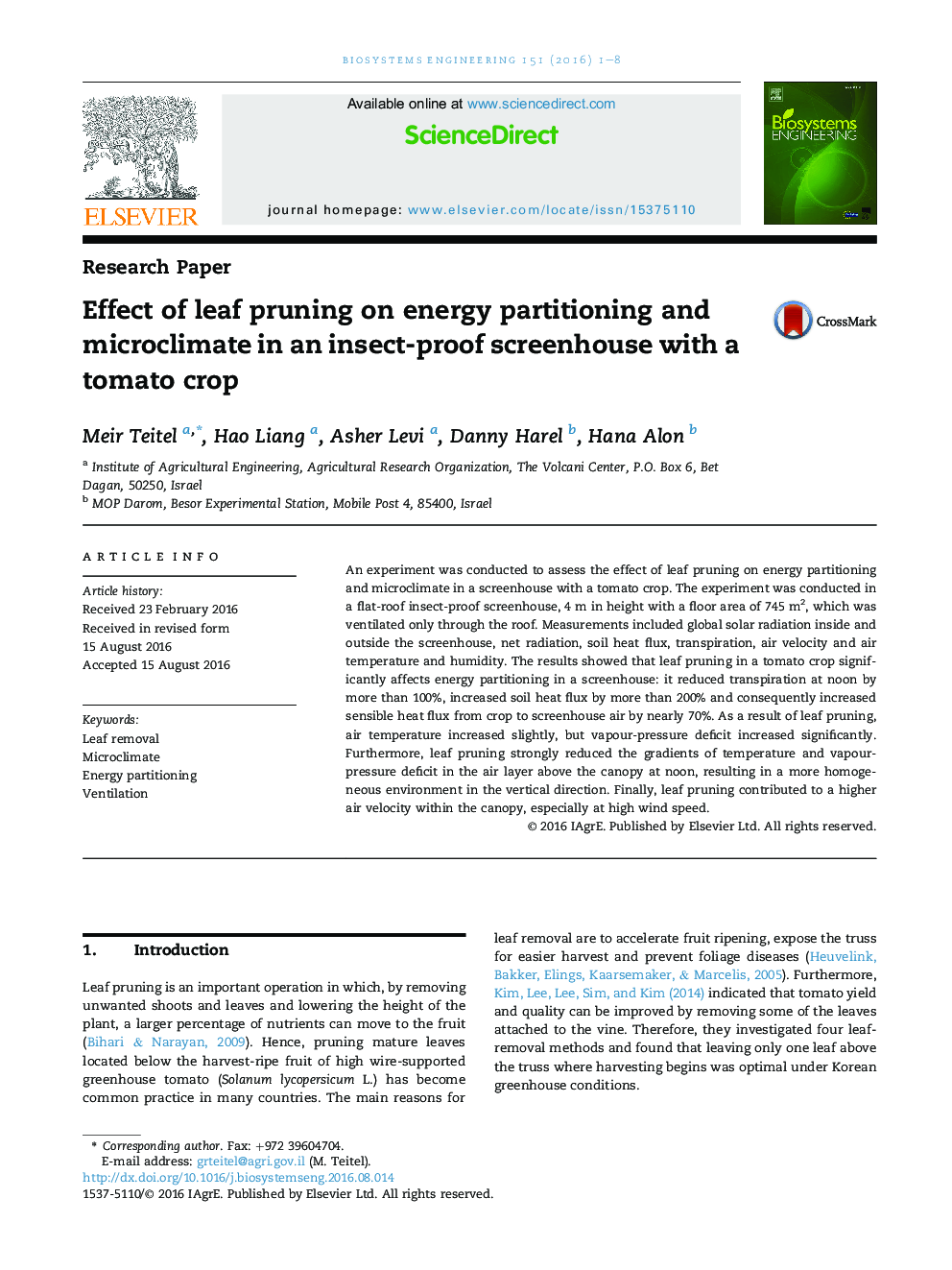| Article ID | Journal | Published Year | Pages | File Type |
|---|---|---|---|---|
| 1710785 | Biosystems Engineering | 2016 | 8 Pages |
•Tomato leaf pruning significantly affected energy partitioning in a screenhouse.•Transpiration reduced by more than 100% and sensible heat flux increased by about 70%.•Air temperature increased slightly but vapour pressure deficit (VPD) increased significantly.•Temperature and VPD gradients in the air layer above canopy significantly reduced.•Pruning contributed to a higher air velocity within the canopy.
An experiment was conducted to assess the effect of leaf pruning on energy partitioning and microclimate in a screenhouse with a tomato crop. The experiment was conducted in a flat-roof insect-proof screenhouse, 4 m in height with a floor area of 745 m2, which was ventilated only through the roof. Measurements included global solar radiation inside and outside the screenhouse, net radiation, soil heat flux, transpiration, air velocity and air temperature and humidity. The results showed that leaf pruning in a tomato crop significantly affects energy partitioning in a screenhouse: it reduced transpiration at noon by more than 100%, increased soil heat flux by more than 200% and consequently increased sensible heat flux from crop to screenhouse air by nearly 70%. As a result of leaf pruning, air temperature increased slightly, but vapour-pressure deficit increased significantly. Furthermore, leaf pruning strongly reduced the gradients of temperature and vapour-pressure deficit in the air layer above the canopy at noon, resulting in a more homogeneous environment in the vertical direction. Finally, leaf pruning contributed to a higher air velocity within the canopy, especially at high wind speed.
